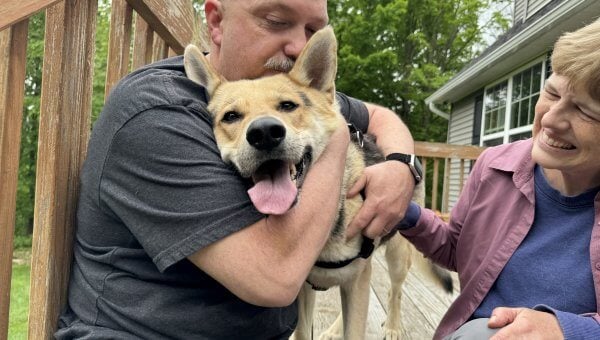6 min read
As dangerous summer heat baked the communities surrounding PETA’s Norfolk, Virginia, headquarters—the Sam Simon Center—and meteorologists urged residents to stay indoors, our fieldworkers spent long hours outdoors, knowing they were the only hope of relief for animals forced to live outside. In punishing temperatures and through pummeling thunderstorms, they delivered doghouses to chained dogs who had no protection, filled water bowls that were dry as a bone, alleviated debilitating parasite afflictions, and got animals out of harm’s way and into partner shelters and loving homes. Here’s just a glimpse of what our Community Animal Project and Mobile Clinics Division accomplished in April, May, and June.
A Lifeline for Dogs Trapped in the Heat
Access to shade is critical for preventing heatstroke in dogs kept chained or penned outside. Our staffers delivered custom-built, insulated doghouses with extended roofs to 51 dogs, including Queso, who previously had no shelter at all to protect him from the elements.
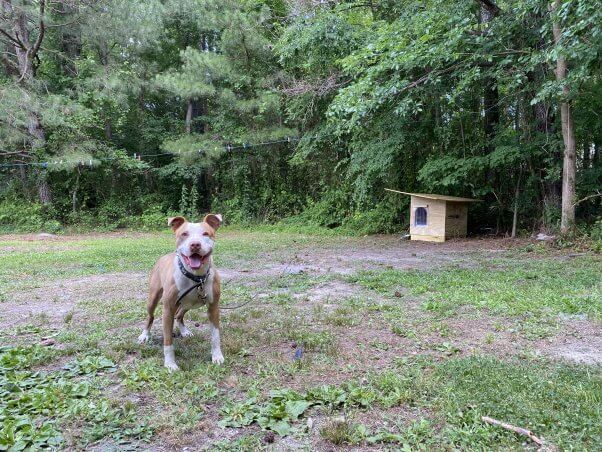
Fieldworkers furnished 25 sturdy wooden doghouses for dogs in the rural southwest Virginia area surrounding Galax while we were there as part of a special annual event with the Twin County Humane Society.
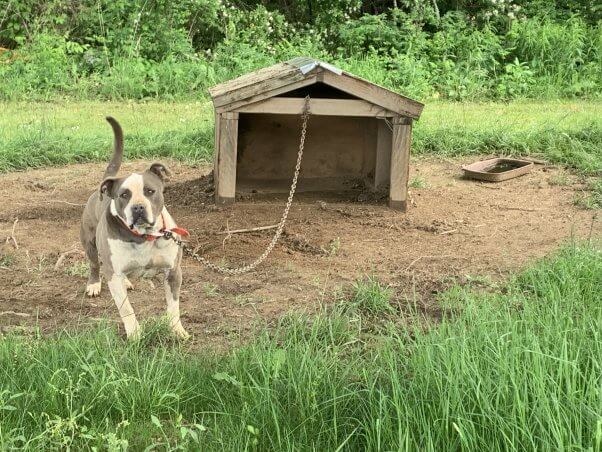
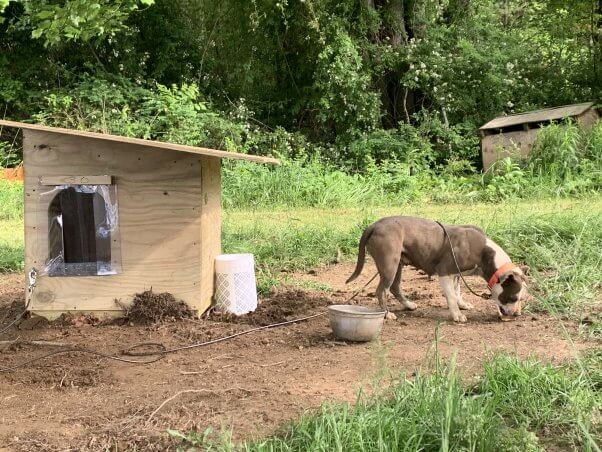
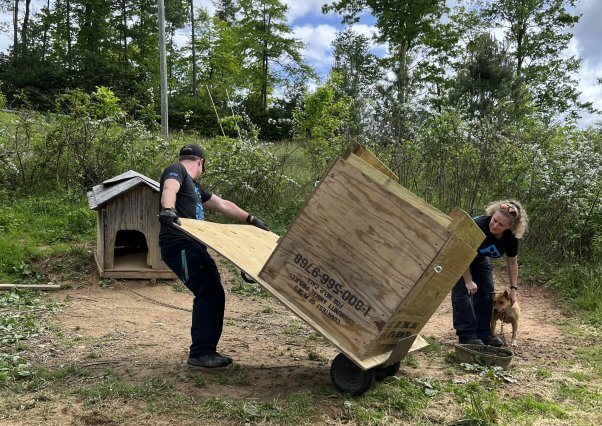
Once the doghouses had been delivered, the team had extra transport space—and it didn’t go to waste. Fieldworkers convinced several owners of “outdoor animals” to give them the opportunity to have a safe, healthy life indoors, and they returned with several dogs and puppies, including Josie and her babies, who were promptly transferred to partner shelters.
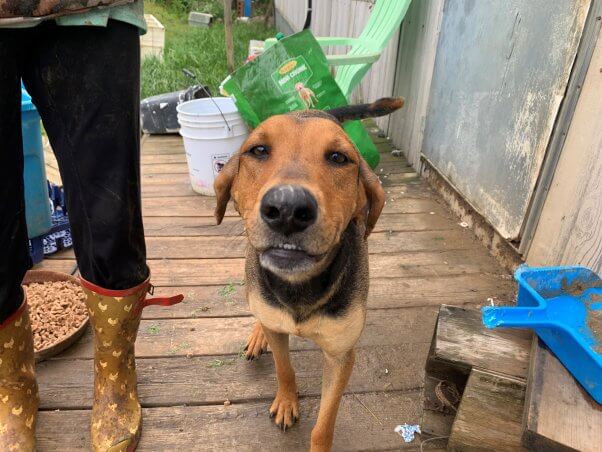
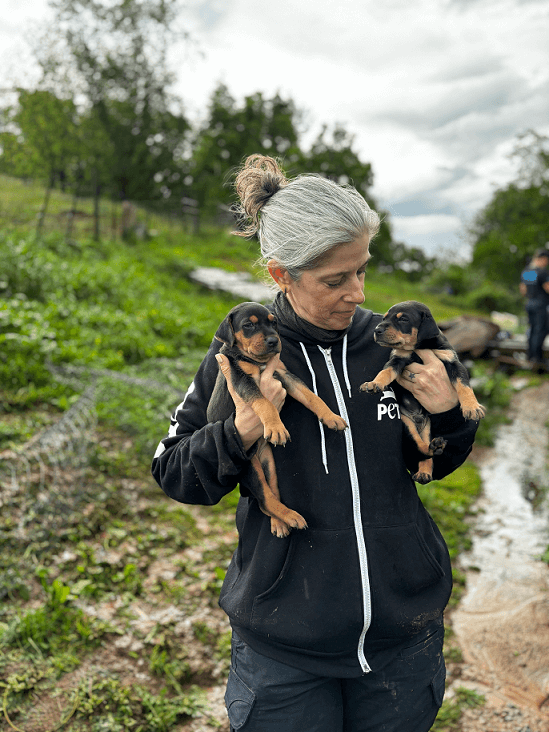
This quarter alone, field staff rescued 135 companion animals from chains, pens, and a difficult life on the streets and transferred them to our shelter partners for a chance at a loving home.
Among them were two young kittens who had been confined to a wire crate in the heat.
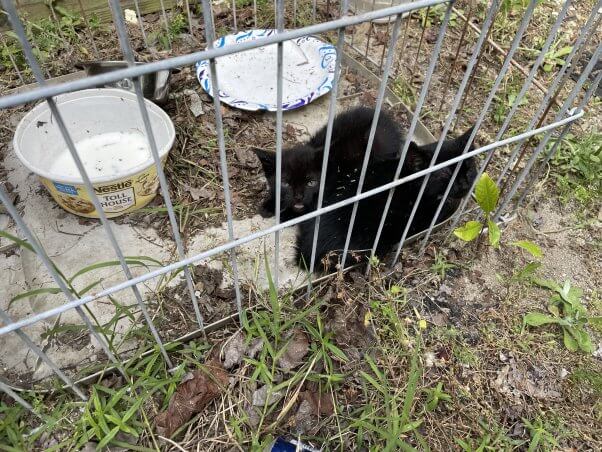
They also rescued Bailey, who had been kept chained outdoors.
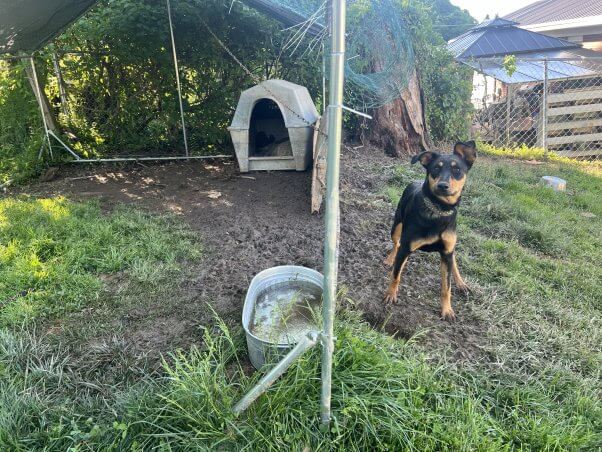
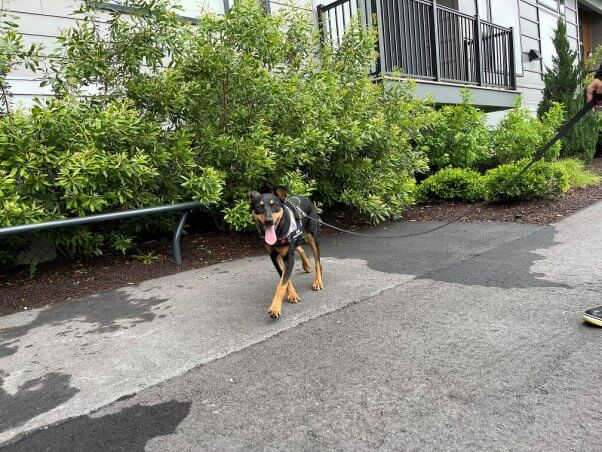
And they certainly didn’t skip Midnight, who was underweight and had been chronically neglected and isolated at the end of a tether.
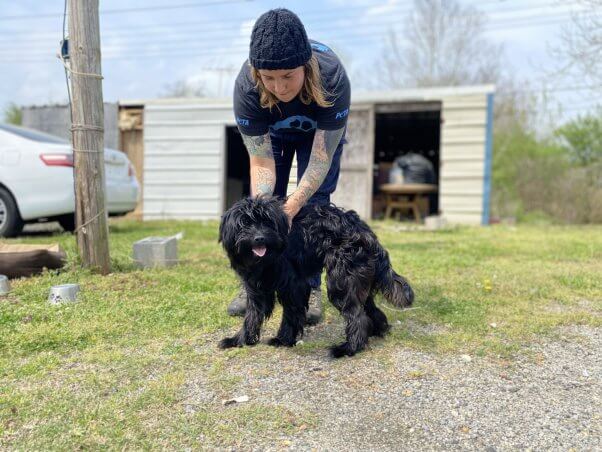
Some of the animals taken in by staffers have already found wonderful adoptive families, including Dior, whom fieldworkers discovered suffering from painful mats all over her body.
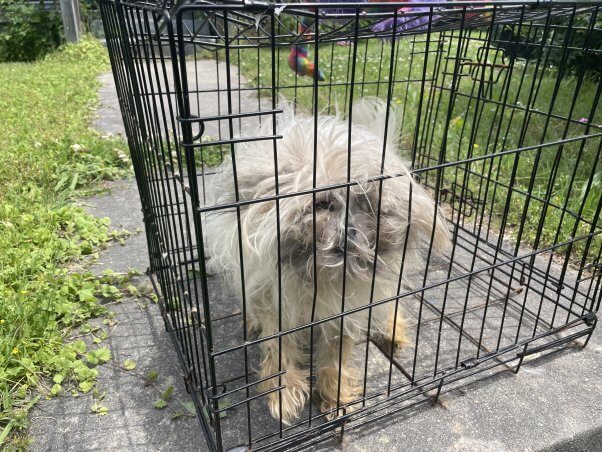
After our clinic staff groomed and spayed her, we transferred Dior to the Chesapeake Humane Society, where she met her new guardian.
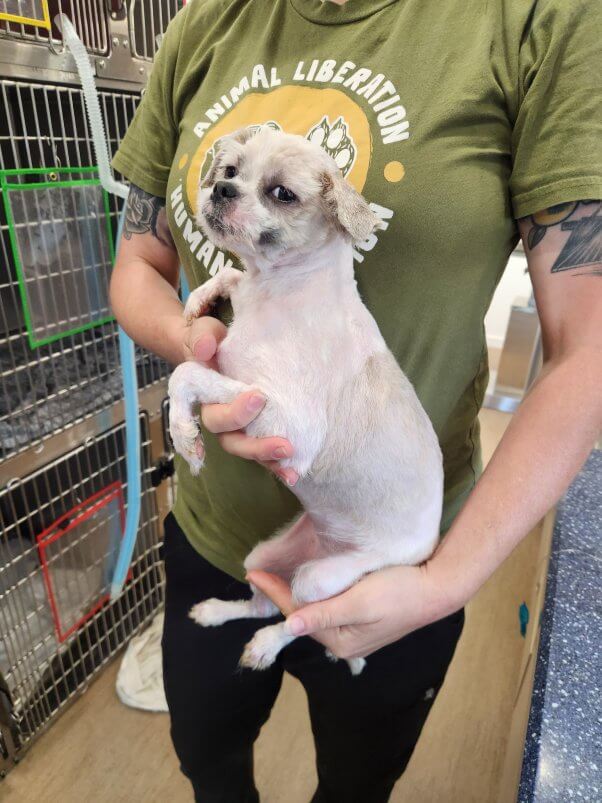
PETA often subsidizes the cost of veterinary care when we transfer animals to our partner shelters.
We Spayed the Day for 2,910 Animals
This quarter, our mobile spay/neuter clinics sterilized 2,910 companion animals, including Sugar Bear, King, and Izzy, whowere among the 194 animals PETA’s Community Animal Project fieldworkers transported to and from their no-cost appointments for free.
Cain had been attacked by another dog, so we treated his wounds and neutered him, all at no cost to his grateful guardian.
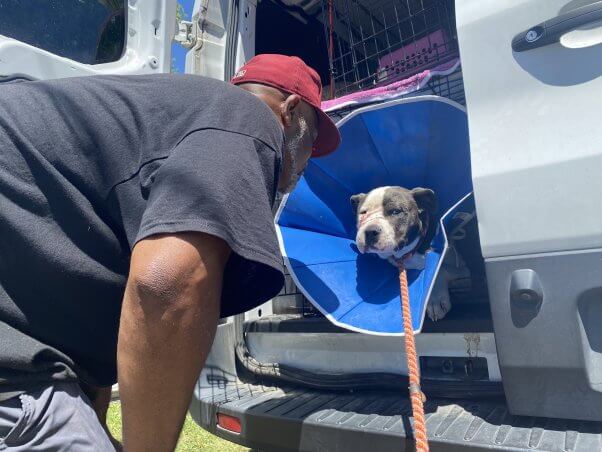
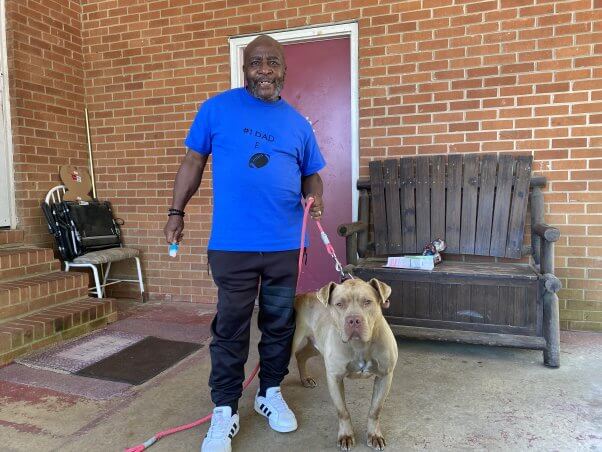
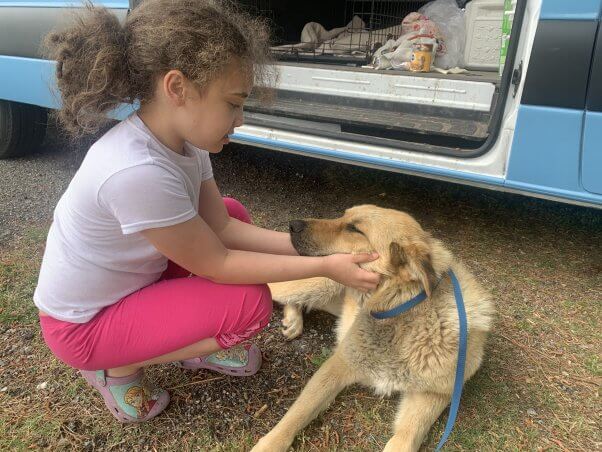
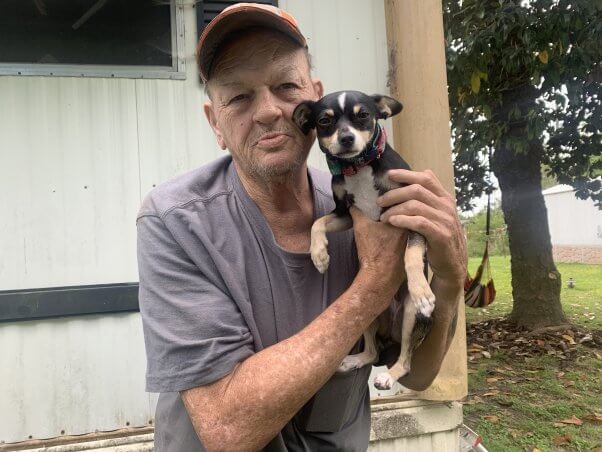
We partnered with Halifax County Virginia Paws and Claws SPCA to provide 86 animals in underserved communities in this rural area with freespay/neuter services and other care.
And in addition to delivering desperately needed doghouses in Galax, PETA staff drove two of our state-of-the-art mobile clinics across Virginia and sterilized a total of 229 dogs and cats at no cost to their guardians over the course of just two days as part of our partnership with the Twin County Humane Society. Animals received complimentary vaccinations, microchips, veterinary care, and more.
As Animal Care Costs Skyrocket, PETA Keeps Families Together
Employees fielded 559 requests for assistance from families who were struggling to pay for their animals’ necessities. Our field staff shaved blankets of matted hair off Betty and Coconut and transported Teddy to one of PETA’s mobile clinics, where he was sedated and groomed during his neuter appointment—all free of charge.
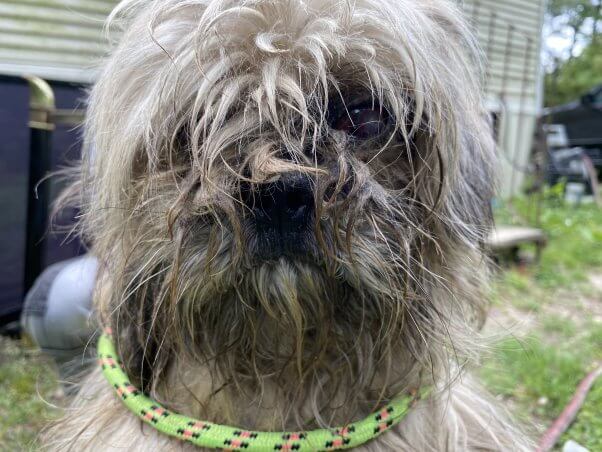
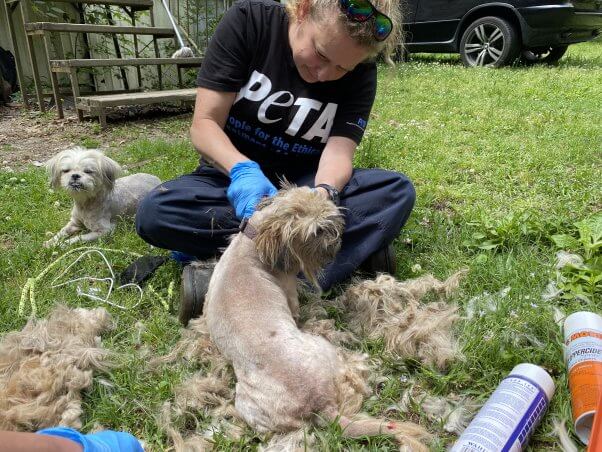
When Animals Needed Help in Their Final Moments, PETA Was There
When senior dog Rio began to decline, experiencing bloody discharge from his nose and swelling behind his right eye, his guardian brought him to PETA’s shelter for free end-of-life care. He was among the 144 animals whose families turned to us when they could not afford this vital, humane service. In just three months, 1,261 of our constituent families have sent postcards to their elected officials in support of our services, including compassionate euthanasia—which only PETA provides for free in the region.
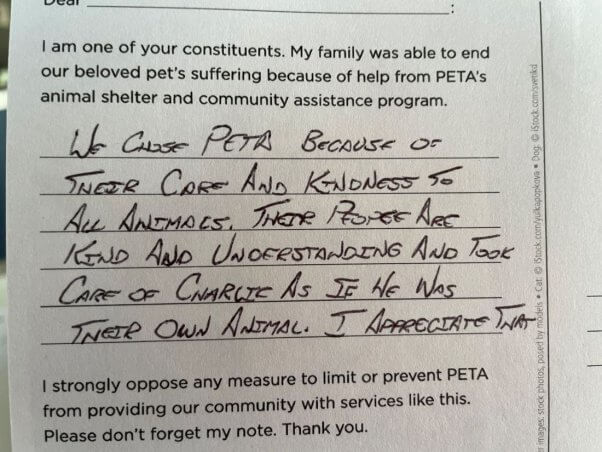
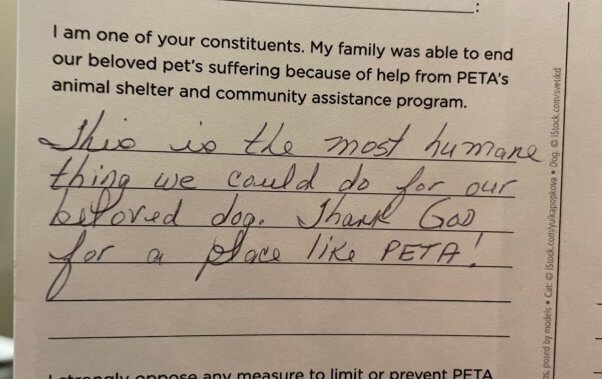
Saving Animals: It Takes a Village
Our annual multishelter adoption event, Poochella, was a smashing success once again. Staffers from PETA’s animal shelter were joined by reps from eight other local groups, and residents and elected officials turned out in droves for a fun, awareness-raising day. Numerous deserving animals found the homes they’d been waiting for.
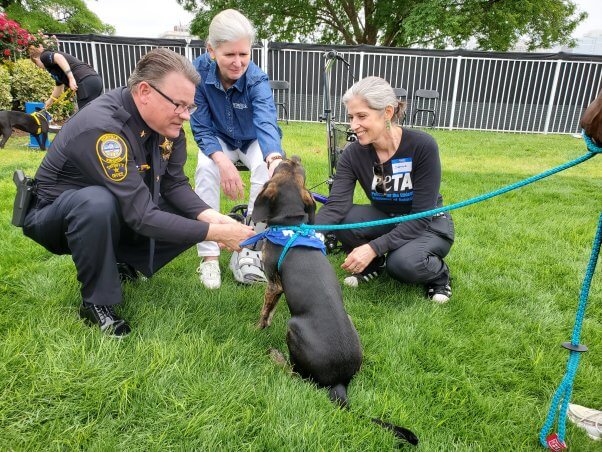
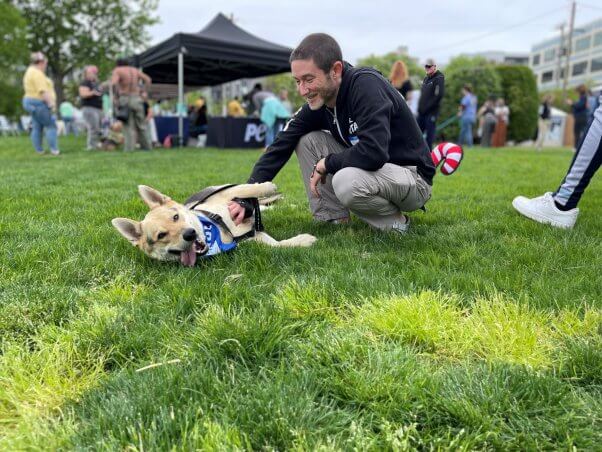
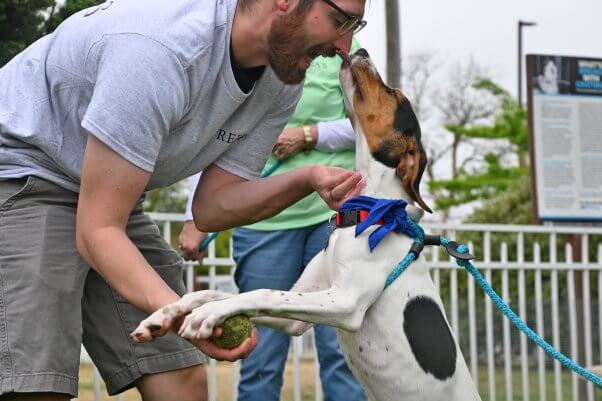
We also held a breakfast meet-and-greet for the North Carolina General Assembly, complete with irresistible dogs—two of whom were available for adoption. Many legislators and staff stopped by for food, conversation, and, of course, cuddles.
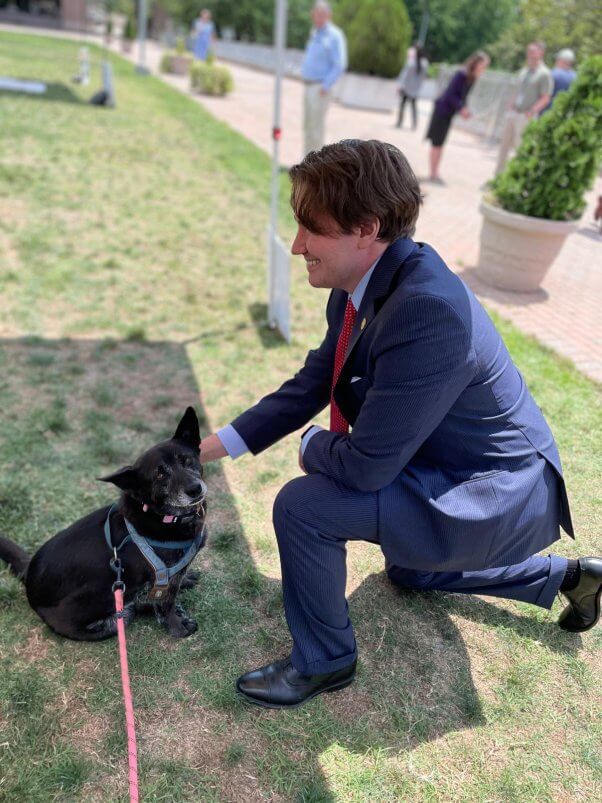
Animals Need You, Too!
Interested in becoming a PETA fieldworker, veterinarian, or Community Animal Project assistant? We want to hear from you! And everyone can help “fix” the crisis of companion animal homelessness by always adopting, getting their animals spayed or neutered, and supporting low-cost sterilization programs. And if you see dogs who are chained or penned without adequate shelter and other necessities, you could save a life by reporting the situation to local authorities. If authorities are unresponsive, call PETA at 757-622-7382 and follow the prompts.

